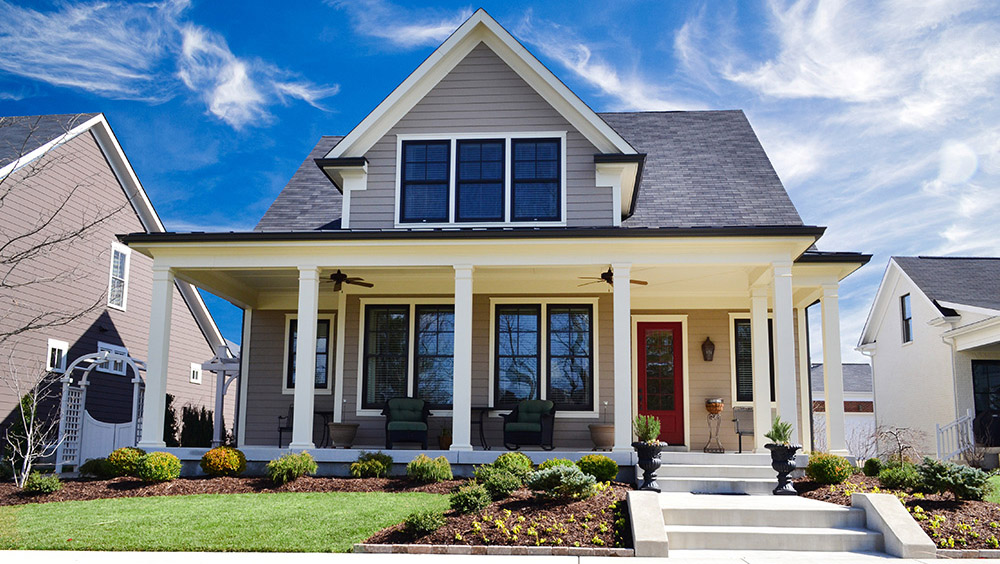Capital Gains Tax Facts that Are Often Overlooked
Getting your home market-ready? Make sure you’re prepared for the tax implications of the sale.
| Apr 18, 2017 11:09AM
Have you seen a return on your investment? Before you start counting your pennies, it’s important to understand the Capital Gains Tax.
Whether you completed several high-return renovations after moving into your new Columbia, SC home, or you were fortunate enough to move into an area right before an upswing in home values, walking away with a profit on a home sale is an exciting proposition. But there’s one thing that can suck the excitement right out of such a positive financial move: the threat of taxes on your investment gain — otherwise known as the capital gains tax.
Luckily, for sellers, the Taxpayer Relief Act (TRA) of 1997 helps many hold on to the gains earned on their home sale. Before the law was introduced, homeowners could only qualify for a once-in-a-lifetime tax exemption of up to $125,000 on a home sale, or roll those earnings into the purchase of another home. Today the rules aren’t quite so stringent, but there are plenty of tax exceptions and loopholes to be aware of before you sell. So let’s break down a few often-overlooked facts about capital gains and home sales.
4 Misconceptions about the Capital Gains Tax
- House Flippers and Homeowners receive equal tax treatment when selling
One common misconception when it comes to capital gains tax on real estate is that all home sales receive an equal tax treatment. Unfortunately, for house flippers, that’s simply not the case. To receive the most profit-friendly tax, you must have used the home as your primary residence for two out of five years owning the home. Profit on the sale is taxed as capital gains if the home wasn’t used as a primary residence for the required time. But if you’re a house-flipper by trade, your sales are considered inventory rather than capital assets, and gains earned is taxed as income. Long-term capital gains tax is 15% for most people, 20% for those in the top tax brackets. And similar to an income tax, rates could range from 10% to 39.6% depending on the size of your return on investment. In addition, house flippers aren’t allowed to simply avoid the tax by rolling profits over into their next home purchase. - Married and single sellers can claim the same exemption
While the TRA did away with the once-in-a-lifetime tax exemption of $125,000, not all restrictions have completely fallen by the wayside. Under the TRA, $500,000 of each home sale profit is tax-free if you’re married, or up to $250,000 if you’re single. But for some newly married couples, claiming this exemption can be a little tricky. If one person owned the house for the past two years, but their partner wasn’t added to the title until, say, the last two months, then they’re in the clear. However, both parties must have lived in the residence for two years prior to the sale — even if only one was on the title before they were married. And that’s not all – if one person sold a previous home within the last two years and cashed in on an exemption, the couple will have to wait until they are both out of that two-year window before pocketing any gains from their shared home. - Primary residence, vacation home, and rental property gains are all taxed the same
If you aren’t flipping homes, but own a second home or rental property you’d like to sell, it won’t be treated as a primary residence for tax purposes. Second homes and rental homes no longer receive the same tax shelter they did before a 2008 shift in the tax code — even if the home becomes your primary residence for a time. Instead, depending on how long you rented out property or used as a second home, you will owe a prorated amount. If, for instance, you used your vacation home as your primary residence for five years starting in 2010, but you used it as a vacation home for 15 years before that, only 10% of the gains is taxed. The rest of the profit wouldn’t be taxed as long as it fell within the exemption limits. - Homes for sale at a high price tag will be taxed at a high rate
Another common misconception is that you’ll owe a higher rate of taxes the higher a price tag on a home. However, for tax purposes, what you owe doesn’t depend on the sale price — it’s based on how much profit you make from the sale. In fact, you could sell your home for $5 million and not owe a penny in taxes — as long as you didn’t make more than the allowed exemption amount on the sale.
Another important thing to note: Capital gains tax on real estate isn’t necessarily an all-or-nothing proposition. If you’re nearing the cap on exemptions, you could still qualify for a partial exemption — just be sure to consult a tax professional before you make any big moves.




